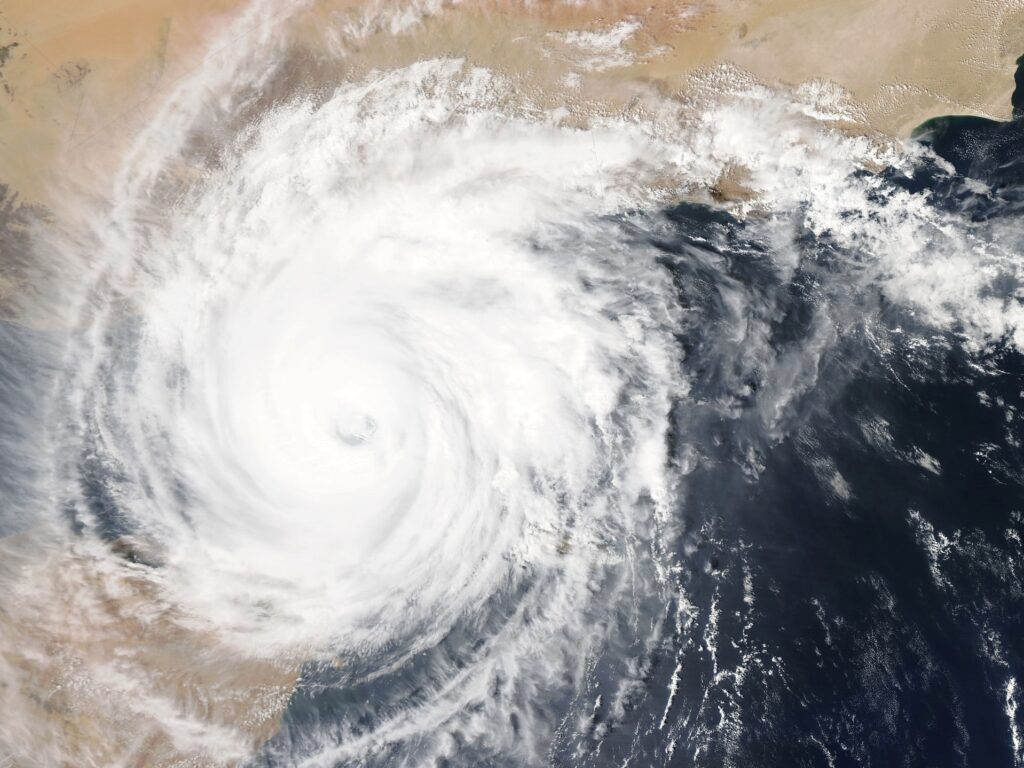Construction in the Philippines can be quite challenging as the country has two seasons that are almost equal in length every year—the wet and dry seasons. If building a home, for example, it is great to have the construction during the dry season. However, some big projects may really need a longer time to complete and stopping during the rainy season is not an option. One concern is whether the weather can affect the pouring of concrete. Learn more tips on how to manage your bulk cement materials during the rainy season through this blog.
Can I pour concrete when it’s raining?
Before we answer the question above, let us review how concrete is formed. Concrete is created by mixing cement, aggregates like sand and water. The mixture turns these ingredients into a paste, which later hardens.
Now, can you pour concrete when it’s raining? The answer is yes. That’s because concrete goes through the chemical process of curing, not drying. In fact, some specific types of cement can be used underwater, so getting your concrete wet during the rain is not really a big issue. However, as rainwater can affect the quality of the concrete mixture, as much as possible, it is best to avoid pouring concrete when raining. The strength of concrete will depend on the amount of these ingredients—they must be of the right proportions. Too much water may weaken the mixture, making the concrete unsafe.
You also have to be aware of how you store your cement during the rainy season. You cannot leave cement lying around in an open space as it may harden or lose its quality when exposed to the rain.
How can I protect concrete from the rain?
There are cases, however, when rain happens after the concrete has been mixed and poured. In this case, all you must do is protect the concrete from the rain. If you’re anticipating rain or rain has started during or after pouring, cover the work area with tarpaulins or plastic sheets and keep them in place with something heavy, as you don’t want the wind to blow them away.
Then, once the rain has stopped, do a visual inspection to check for any damage on the concrete. Look for bumps or unevenness. Also, do a scratch test with a screwdriver. Just drag a screwdriver across the concrete surface to check how hard it is. Minor damages can be easily fixed with additional concrete. However, if you think that a significant portion is damaged, you may need to remove this portion and redo the concrete process.
Tips When Pouring Concrete during Rainy Season

As much as possible, it’s best to avoid rainy and typhoon season when you are starting out a construction project. However, when pouring concrete is unavoidable during the rainy season, your best recourse is to work around it by doing the following tips:
- Always check the weather forecast. Online weather forecasting websites show rain probability for days and weeks ahead. Compare this with your construction timeline and make sure to avoid doing concrete work on days when there is heavy rain.
- Have your covers ready. The weather forecast may not always be accurate, so even though it says that there will be no rain during your concrete pouring day, it is still best to have your tarpaulins and plastics sheets ready in case of a downpour.
- Check your site after the rain. Before starting your concrete pouring after rain, ensure that the area is dry. You don’t want rainwater getting into your mixture, as it may be contaminated.
Cement Supplier in the Philippines
The quality of the concrete you will have in your construction will greatly depend on the cement you will use. So, rain or shine, be sure that you only get your cement from reputable suppliers. When looking for cement, ask for the best brand, like Union Cement.
Union Cement has the most modern equipment also used by the world’s leading cement manufacturers to produce cement products with high workability, early compressive strength, and consistency that exceed both Philippine and international standards. They offer cement in topnotch packaging options, such as WPP bags and kraft bags, to preserve the quality of the cement during delivery.
Aside from cement bag options, Union Cement also offers bulk cement delivery, via land or sea! Unlike bagged cement, bulk cement is the cement that is transported and delivered using a big vehicle, a truck, designed especially for cement. While bagged cement is fine for small to medium-sized construction projects, you may need bulk cement for the construction of big structures like buildings and commercial establishments.
One of Union Cement’s best-selling products is the Union Ultra Strength 50, which has a compressive strength of up to 50 MPa after 28 days. This simply means that it can withstand heavy loads, so it is safe for structures that will be used by people. It is available in 40kg kraft and WPP bags as well as a 1.0-ton jumbo bag. You can also get Union Super Strength 40, a cement bag with superb mineral additives suitable for use in general concrete construction. This is available in a 40kg kraft bag, 1.0-ton jumbo bag, and cement bulk. They also have Union Extra Strength ES. This blended cement type 1P Portland-Pozzolan Cement is suited for various concrete applications. It can achieve a compressive strength of up to 50 MPa after 28 days, just like Union Ultra 50. It is available in a 40kg kraft bag.
Union Cement has unparalleled knowledge of the market, technology, and trends in the cement business. Thus, they produce only top-notch cement products, so if you’re looking for bulk cement suppliers, be it for residential or industrial construction needs, look no further than Union Cement! Like our official Facebook page for more cement product updates. For inquiries about our products, call (02) 8870 0100 or 0917 189 9791 or Contact Us through our website.


Latest Posts